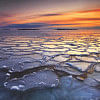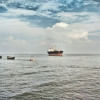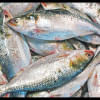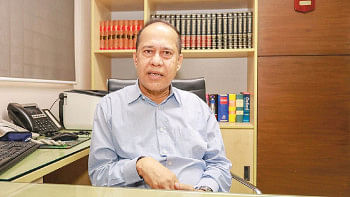Promising sectors under blue economy identified
Twenty six sectors have been identified to exploit the promising sectors of the blue economy in Bangladesh, however almost all of them remained untapped for lack of proper initiatives.
In January 2017, a small administrative cell named “Blue Economy Cell (BEC)” was created under the Energy and Mineral Resources Division of the Ministry of Power, Energy and Mineral Resources.
But the activities of BEC remained confined to holding occasional meetings as it is now inadequately equipped with a few officials sent on deputation.
The parliamentary standing committee on Power, Energy and Mineral Resources Ministry made a recommendation to upgrade the BEC as an authority with permanent setup, but the recommendation has gone unheeded.
The 26 sectors were identified by the foreign affairs ministry in two national-level workshops in 2014 and 2017.
The sectors are: shipping, coastal shipping, seaports, passenger ferry services, inland waterway transports, shipbuilding, ship recycling industries, fishery, aquaculture, coastal aquaculture and mariculture, marine acquaintance products, marine biotechnology, oil and gas, sea salt production, ocean renewable energy, tidal energy, blue energy (osmosis) and biomass, aggregate mining (sand, graveetc), marine mineral mining, coastal tourism, recreational water sports, yachting and marines, cruise tourism, coastal protection/artificial islands/greening coastal belts, human resource development, marine surveillance and marine special planning.
Bangladesh won 19,467 square kilometres of the disputed 25,602 sq km area along the Indian border in the Bay of Bengal, following the settlement of maritime dispute on July 8, 2014.
Earlier, the country won a claim to 200 nautical miles exclusive economic zone and territorial rights in the Bay of Bengal following the settlement of dispute with Myanmar in December 18, 2013.
Officials said those two settlements opened doors of huge blue economy.
Meanwhile, the government had formed a 25-member high-powered committee, headed by the principal secretary to the prime minister, to prepare a comprehensive plan on blue economy.
But, in the last two years, there has been no headway in this regard, because of inactivity of the committee, said a top official of the Blue Economy Cell, seeking anonymity.
Foreign ministry officials, however, said they have recently moved for a study to analyse the data of an already conducted survey, to identify the presence of gas-hydride, a kind of methane gas, usually found in low depth of 200-500 metres under the sea-level, while natural gas is found 3000-5000 metres under the sea.
Energy experts said neighbouring India and Myanmar had moved much earlier to exploit potentials of their maritime areas.
About the offshore gas exploitation, State Minister for Power, Energy and Mineral Resources Nasrul Hamid said that work started in four blocks in deep and sallow sea, under four Production Sharing Contracts (PSCs) with five companies.

 For all latest news, follow The Daily Star's Google News channel.
For all latest news, follow The Daily Star's Google News channel. 








Comments